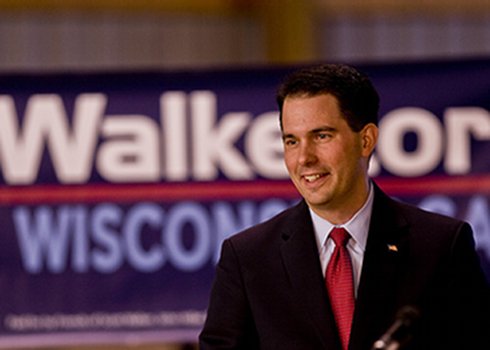
One chief reason Big Labor pushed for an immediate recall of Governor Scott Walker was a fear that, by the time of the next regular election in 2014, voters would have had time to see the benefits of Walker’s budget reforms. Much of the doom-and-gloom predicted by unions as the reforms were being debated would have long since been vaporized as empty rhetoric before voters went back to the polls. Unfortunately for Big Labor, positive news on Walker’s reforms is already coming in ahead of the recall vote.
Suffolk University in Massachusetts today released an analysis of the budget reforms:
Act 10, which curbed collective bargaining for most unionized public employees, in the whole has saved taxpayers more than $1 billion, according to The Economic Impacts of the Wisconsin Budget Repair Act. The study is slated for release this week by Beacon Hill Institute, a prominent free market think tank.
What the analysis found is that without the law, which in part requires covered public employees to contribute more to their benefits and holds wage increases to the rate of inflation, Badger State governments would have been forced to raise taxes or make deep job cuts to meet budget expenses.
As it was, Gov. Scott Walker and the Republican-controlled Legislature pushed through reforms and reductions that filled a $3.6 billion budget shortfall, although organized labor asserts Republicans balanced the budget on the backs of public employees.
Keep in mind, these budget savings came without wide-spread layoffs, drastic cuts to services or stiff tax hikes. They came about simply by making public sector employees a little bit more like private sector employees.
These results point to the other reason unions pushed the recall so aggressively; many other states need to find these kinds of savings to tackle their own budget shortfalls. If Walker survives the recall fight next month, expect many more states to adopt these common-sense reforms.

COMMENTS
Please let us know if you're having issues with commenting.